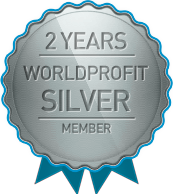Opportunities
» Home Business» Free Associate Membership
Products and Services
» Super Solo Ads» Extreme Traffic Pack
» 18 Memberships FREE for LIFE
Free Stuff
» FREE Autoresponder!» Internet Marketing For Newbies
» Solo Blast To 30,000 FREE
Free Traffic Packages
» 500,000 Mega Ad Credits» Promote To ONE Million
Brought To You By
Arlen Castenada

Published by: Arlen "Buddy" Castenada on 23-Aug-24
Assistive devices and technolog for individuals recovering froma traumatic brain injury (TBI)
Assistive devices and technology can play a crucial role in helping individuals recovering from a traumatic brain injury (TBI) regain independence and improve their quality of life. Here are some commonly used tools and technologies:
Cognitive Aids
- Memory Aids:Smartphones/Tablets: Apps for reminders, calendars, and note-taking.
Digital Voice Recorders: For recording important information or instructions.
Electronic Organizers: Devices specifically designed to help with scheduling and task management. - Task Management Tools:To-Do List Apps: Such as Todoist or Microsoft To Do.
Project Management Software: Like Trello or Asana for more complex tasks.
Communication Aids
- Speech Generating Devices (SGDs):Devices that produce speech output for individuals who have difficulty speaking.
- Augmentative and Alternative Communication (AAC) Apps:Apps like Proloquo2Go that assist with communication through symbols, text, or pictures.
Mobility Aids
- Wheelchairs/Walkers/Cane Modifications:Customizable options to suit individual needs for better mobility support.
- Adaptive Driving Equipment:Hand controls, specialized seats, or other modifications to make driving safer if the person is able to drive again.
Environmental Control Units (ECUs)
- Systems that allow control of home appliances like lights, TV, thermostat via voice commands or remote controls.
Vision & Hearing Aids
- Magnifiers/Screen Readers/Braille DisplaysFor those with vision impairments post-TBI.
- Hearing aids/cochlear implants For those experiencing hearing loss after TBI
Physical Rehabilitation Tools
- Robotic Exoskeletons Assist in walking exercises during physical therapy sessions
2 . Virtual Reality Systems Used in rehabilitation programs to simulate real-world activities safely
3 . Adaptive Sports Equipment Modified equipment allowing participation in sports activities
4 . Home Exercise Equipment
Tailored exercise machines designed specifically for rehabilitation purposes
Tailored exercise machines designed specifically for rehabilitation purposes
5 . Wearable Technology
Fitness trackers monitoring activity levels aiding recovery progress tracking
Fitness trackers monitoring activity levels aiding recovery progress tracking
6 . Smart Home Technology
Automated systems enhancing safety & convenience within living spaces
Automated systems enhancing safety & convenience within living spaces
7 . Specialized Computer Software
Programs improving cognitive skills such as memory games/puzzles etc .
Programs improving cognitive skills such as memory games/puzzles etc .
8 . Online Support Communities
Platforms connecting survivors sharing experiences/resources/tips etc .
Platforms connecting survivors sharing experiences/resources/tips etc .
9 Telehealth Services
Remote consultations providing access healthcare professionals without travel constraints
Remote consultations providing access healthcare professionals without travel constraints
10 Educational Resources
Websites/books/videos offering valuable insights into managing life post-TBI effectively
Websites/books/videos offering valuable insights into managing life post-TBI effectively
11 Personal Emergency Response Systems(PERS)
Wearable devices alerting emergency services at push button ensuring prompt assistance when needed most
Wearable devices alerting emergency services at push button ensuring prompt assistance when needed most
12 Customized Seating Solutions
Ergonomically designed chairs supporting posture reducing strain during prolonged sitting periods
Ergonomically designed chairs supporting posture reducing strain during prolonged sitting periods
13 Sensory Integration Products
Items promoting sensory processing helping manage overstimulation common among TBI survivors
Items promoting sensory processing helping manage overstimulation common among TBI survivors
14 Sleep Monitoring Gadgets
Devices tracking sleep patterns identifying issues affecting restorative rest crucial recovery process
Devices tracking sleep patterns identifying issues affecting restorative rest crucial recovery process
15 Nutrition Tracking Applications
Mobile apps assisting meal planning ensuring balanced diet essential overall health well-being
Mobile apps assisting meal planning ensuring balanced diet essential overall health well-being
16 Financial Management Tools
Budgeting software simplifying expense tracking maintaining financial stability amidst medical expenses
Budgeting software simplifying expense tracking maintaining financial stability amidst medical expenses
17 Legal Assistance Services
Professional guidance navigating legal complexities securing rights entitlements following injury
Professional guidance navigating legal complexities securing rights entitlements following injury
18 Vocational Training Programs
Courses equipping new skills facilitating return workforce adapting career paths accordingly
Courses equipping new skills facilitating return workforce adapting career paths accordingly
19 Peer Mentorship Initiatives
Connecting experienced mentors providing emotional support practical advice throughout journey
Connecting experienced mentors providing emotional support practical advice throughout journey
20 Recreational Therapy Options
Activities fostering social engagement leisure pursuits enhancing mental emotional wellness
Activities fostering social engagement leisure pursuits enhancing mental emotional wellness
21 Family Caregiver Resources
Information/training empowering caregivers effectively assist loved ones' recovery process
Information/training empowering caregivers effectively assist loved ones' recovery process
22 Community Integration Programs
Initiatives promoting active participation community events fostering sense belonging purpose
Initiatives promoting active participation community events fostering sense belonging purpose
23 Holistic Healing Approaches
Complementary therapies acupuncture/yoga/meditation addressing holistic aspects healing journey
Complementary therapies acupuncture/yoga/meditation addressing holistic aspects healing journey
24 Research Participation Opportunities
Involvement clinical trials contributing advancements understanding treatment TBI conditions
Involvement clinical trials contributing advancements understanding treatment TBI conditions
25 Government Assistance Programs
Accessing benefits/services provided governmental agencies supporting long-term rehabilitation efforts
Accessing benefits/services provided governmental agencies supporting long-term rehabilitation efforts
These are just some examples; the best choice depends on individual needs/preferences so consulting healthcare professionals ensure appropriate selection usage maximizing potential benefits offered by these innovative solutions available today!
Resource
Specials
» Advertise 5 Sites For ONE Year» 100% Commissions PLUS Free Advertising!
» Awesome FFREE TRAFFIC Resources!
» See The Magic.....No Farm Required
» 100% PAYPAL Commissions
» AdlandPro Free U.S. Classifieds Since 1998
» 500,000 Free Ad Credits
» Earn $100s Even $1000s WIthout Recruiting
» Generous SIGNUP Bonuses~
» Inflation Fighter PLUS Money Maker!
» 2 In 1 Folding Picnic Table and Bench Combo
» Surging Profits
» Surging Profits
» BLOG
» On A Fixed Income?...Check THis Out
» PLR & eBook Store





